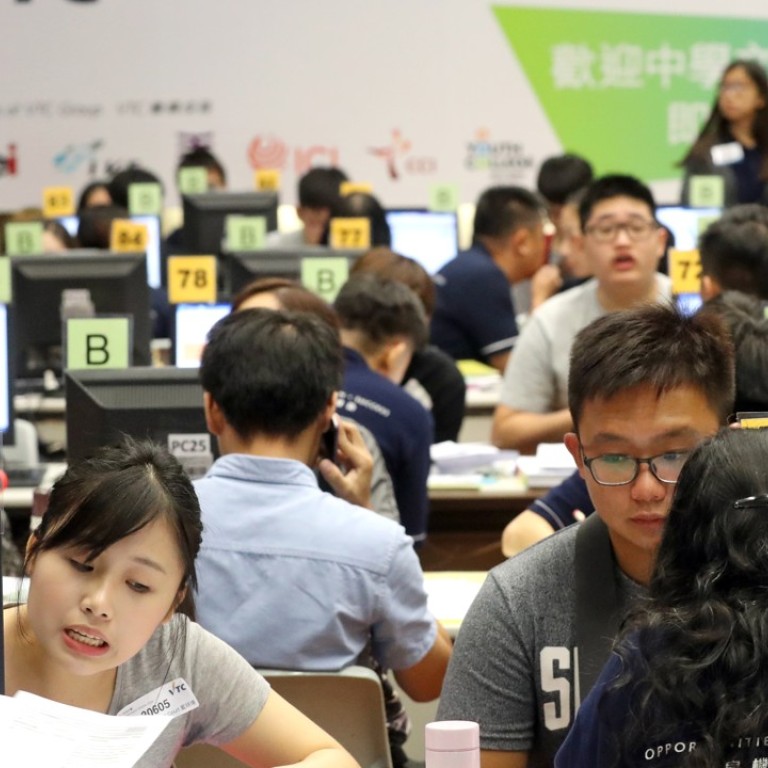
Letters to the Editor, December 3, 2017
Offer students more summer internships
I agree with correspondents and experts who have called for more vocational training in local schools.
Schools which are willing to launch vocational training programmes should receive additional subsidies.
There is clear a need for this initiative, as teenagers often complain that the government does not offer enough vocational training courses or work experience opportunities.
Many pupils are not academically gifted and they either cannot get into university or do not want to study for a degree.
They want to follow a career path that will require getting qualifications at a vocational training institution, but with the present education system they have limited options.
These youngsters would really benefit from being able to join a summer internship in their chosen trade.
They can gain so much from this kind of work experience. It is better for them to be able to make good use of the long summer break rather than just spend it playing video games.
An internship can help them improve their social skills, which would stand them in good stead when they embark on their careers. The government has to recognise the importance of vocational training.
Jolie Wong, Tai Po
Publicise the dangers of light pollution
The problem of light pollution is serious in Hong Kong, and I do believe it is getting worse. It has many negative effects and we may be unaware of some of what I would call the hidden dangers. One of the most obvious indicators that light pollution has got worse is that you cannot see the night sky here, especially in the urban areas.
One of the negative effects is that bright lights confuse animals, as they cannot tell the difference between night and day. This can threaten migration and reproduction patterns.
The government has to deal with this problem. There must be more education so that the public and those responsible for the light pollution, such as hoarding advertisers, realise that bad habits must change.
With a concerted effort, there could be fewer bright lights.
Daniel Hui, Hang Hau
Limousines occupied taxi pickup area
I am 81 and have Parkinson’s disease. This causes me to be wheelchair bound, and to move around I have to be pushed or take a taxi.
On Tuesday, having had lunch at the Foreign Correspondents’ Club in Central, I needed a taxi to get to my hospital appointment, only to find the entire length of the possible pickup area, including the official one for taxis, taken up by parked chauffeur-driven limousines.
This left my helper with no choice but to push me between two of the vehicles, straight out into middle of the road and into the passing traffic.
I do not expect the police to do anything about this dangerous situation, it is too well known, but next time I will be carrying a hammer and I will beat a safe path for myself and my helper to my taxi, right over/through the illegally parked, offending limos.
If this draws the attention of one or two of the owners of a limo, all to the good. I (and my hammer) can have a little chat with them. After all, I’m 81 and well past caring.
Peter Berry, Lamma
Waste charge will not hurt rich citizens
I think the government’s proposed “polluter pays” waste charge scheme has advantages and disadvantages, and some citizens have doubts about whether it will be effective.
As it will be the first time people are charged for the waste generated by their household, it will hopefully encourage some families to cut back on volumes of rubbish. Also, when looking at the revenue collected and waste volumes, officials will be able to evaluate if the scheme is making a real difference.
However, I am concerned that the charges might place a heavy financial burden on low-income families that are already struggling to get by.
But, on the plus side, they may try really hard to recycle as much waste as possible.
I am not convinced, however, that it will change the wasteful habits of well-off citizens, as they can easily afford the charges even for the largest bags.
It seems to be a punitive scheme when it would have been better to take a carrot and stick approach.
By all means charge people who fill a lot of refuse bags. But the government should also introduce a financial rewards scheme for households that really cut back on the volumes of rubbish they generate, for example, through extensive reuse and recycling of waste.
Shelly Sit, To Kwa Wan
Chefs can take initiative on healthy meals
This study showed that there can be a difference in nutrient levels between the same dish when it is ordered at different restaurants. In some places, the same meals can very high in salt, sugar and fat content.
Unfortunately, some of the things than can make food tasty can be bad for you.
Hongkongers eat out a lot, sometimes for pleasure but often because of the pressure of work. They are in rush and so order a meal that can be served and eaten quickly, or can be packed as a takeaway.
Diners should think more carefully about the ingredients of the food they order. But restaurants should also recognise the importance of health and try to offer dishes that taste good, but are still nutritious.
If chefs know they are using too much salt, sugar and oil, they should make the effort to cut back. I look forward to seeing more healthy options offered on restaurant menus in the city.
Carly Chan, Sham Shui Po

